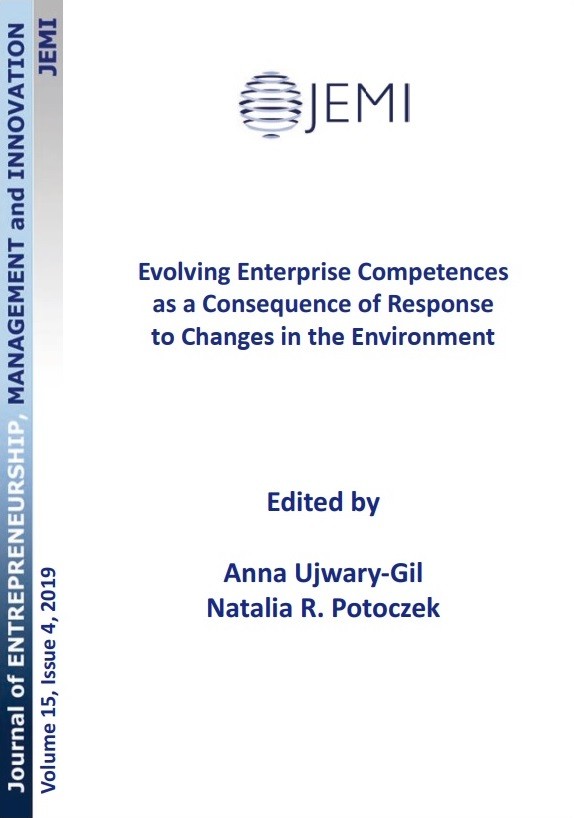Diversification of innovation strategies of Polish industrial processing enterprises depending on their size after the global financial crisis
Diversification of innovation strategies of Polish industrial processing enterprises depending on their size after the global financial crisis
Author(s): Aleksander Jakimowicz, Daniel RzeczkowskiSubject(s): Social Sciences, Business Economy / Management
Published by: Fundacja Upowszechniająca Wiedzę i Naukę "Cognitione"
Keywords: industrial processing enterprises; innovation strategy; barriers to innovation; eco-innovations; correspondence analysis
Summary/Abstract: The purpose of this article is to define an innovation strategy for Polish industrial processing enterprises for 2012–2014, i.e. after a negative external shock which escalated in 2008–2010 and was associated with a global financial crisis. Various types of enterprises (small, medium, large), geographic scope of markets, forms of innovation activity of enterprises, decisions by enterprises regarding innovation implementation types, methods of product development and process innovations by enterprises, and forms of eco-innovation which are the most frequent in industrial processing, were studied as well as barriers to innovation. Overall, seven detailed research hypotheses were statistically verified using a chi-square test for independence. Subsequently, due to a high number of variables taken into account in the study as well as the necessity of providing a detailed description of the relationships between them, a correspondence analysis was employed. The analysis was aimed at reducing the multi-dimensional space where the studied phenomena occur to a space of fewer dimensions, in this case, to two dimensions. This allows for a careful examination of the co-occurrence of the phenomena using biplots. A relatively slight tendency of enterprises towards innovation was established as well as caution in its implementation, which may result from the relative persistence of the exogenous shock effects. At the same time, there is a clear tendency towards eco-innovation in a broader perspective, with a slow decrease – as presumed by enterprises – in the importance of barriers to innovation. Practical conclusions following from the study show the need to emphasize the benefits of innovation, especially eco-innovation, in pro-innovation policy, which will help to avoid the adverse effects of the external shock – psychological barriers and excessive caution in innovation planning and implementation. The article presents an original, unique, and comprehensive analysis of the relationships between sixty-three variables describing the innovation activity of enterprises. Therefore, the value of the article lies in an original and strictly empirical approach to the problems of innovation in the industrial processing sector, which means that the study presented in it might become a possible model for such analyses in the future.
Journal: Journal of Entrepreneurship, Management and Innovation
- Issue Year: 15/2019
- Issue No: 4
- Page Range: 35-76
- Page Count: 42
- Language: English

